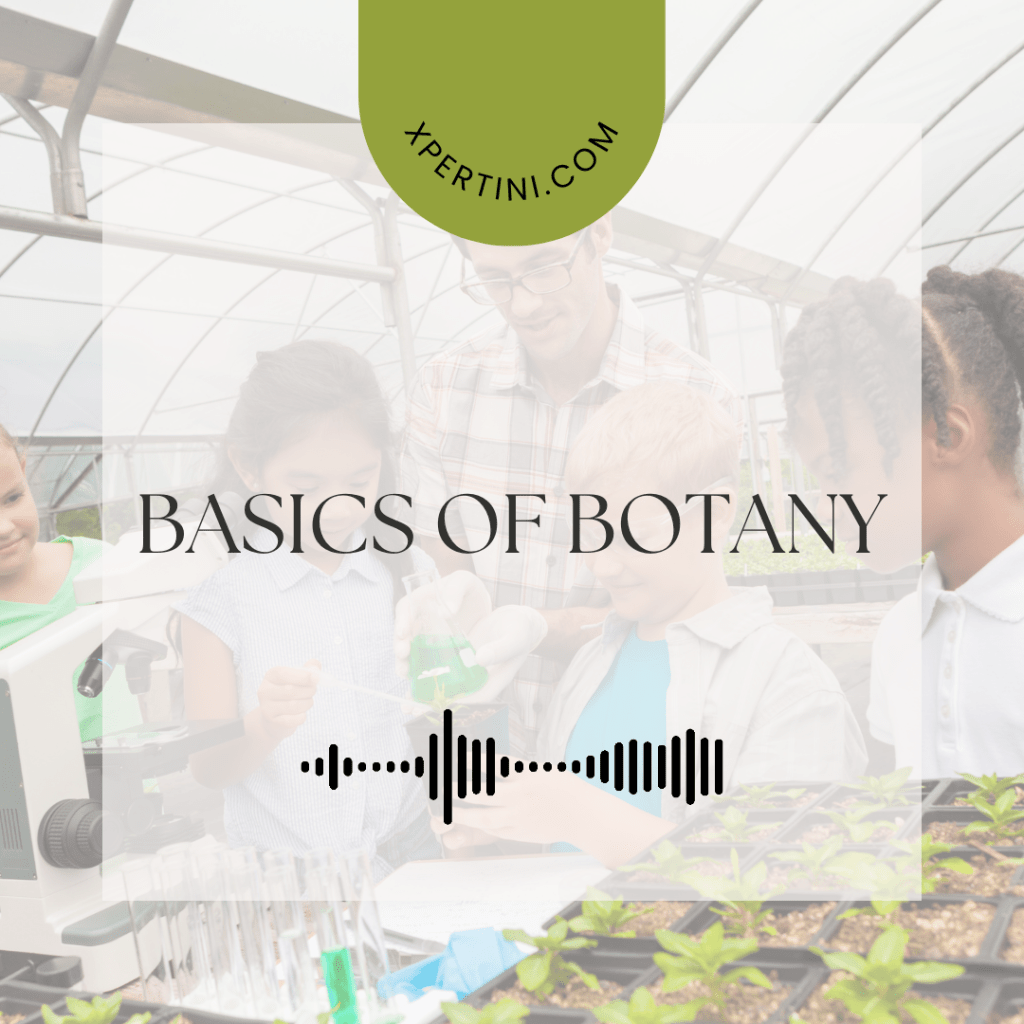Basics of Botany
Course Summary
In this comprehensive course on plant biology, students delve into the world of botany, exploring the diverse domains of plant physiology, ecology, genetics, and biotechnology. Through a structured curriculum, learners uncover the fundamental principles governing plant life, from photosynthesis and respiration to reproductive strategies and genetic mechanisms.
Throughout the course, students gain a deep understanding of the complex interactions between plants and their environment, learning how plants adapt to different habitats and contribute to ecosystem dynamics. They explore the practical applications of plant science in various industries, including agriculture, medicine, and biotechnology, gaining insights into the crucial role of plants in sustaining human society.
Moreover, the course equips students with valuable insights into the ethical considerations surrounding plant biotechnology, fostering a nuanced understanding of the implications of genetically modified organisms (GMOs) in agriculture and beyond. By examining real-world case studies and engaging in critical discussions, learners develop the skills and knowledge needed to navigate the ethical dilemmas inherent in plant biotechnology.
As students progress through the course, they are encouraged to explore the vast array of career opportunities available in the field of botany. From research and academia to industry and conservation, the course highlights the diverse paths that aspiring botanists can pursue, providing practical tips for success in this rewarding field. Through hands-on activities, case studies, and expert insights, students emerge from the course equipped with the tools and knowledge to begin a fulfilling career in plant science.
Course Overview
This course provides a fundamental understanding of botany, covering essential concepts and principles for individuals pursuing a career in the field or seeking to expand their knowledge of plant science. Participants will explore various aspects of plant biology, from cellular structure to ecological interactions, gaining insight into the importance of plants in ecosystems and human societies.
Course Objectives
Understand the basic principles of botany.
Identify and classify different plant species.
Explain the physiological processes in plants.
Analyze plant interactions with their environment.
Apply botanical knowledge in practical settings.
Appreciate the significance of plants in sustaining life on Earth.
Course Outcomes
Identify and describe the anatomical structures of plants.
Demonstrate an understanding of plant reproduction and genetics.
Analyze the ecological roles of plants in various ecosystems.
Apply botanical knowledge to identify and classify plant species.
Evaluate the importance of plants in human nutrition and medicine.
Demonstrate proficiency in using botanical tools and techniques.
Design and conduct experiments related to plant physiology.
Assess the impact of environmental factors on plant growth and development.
Collaborate effectively in botanical research projects.
Demonstrate ethical considerations in plant science research and practice.
Course Audience
Students pursuing degrees in biology or related fields.
Professionals seeking to enhance their understanding of plant science.
Individuals interested in gardening, agriculture, or environmental conservation.

